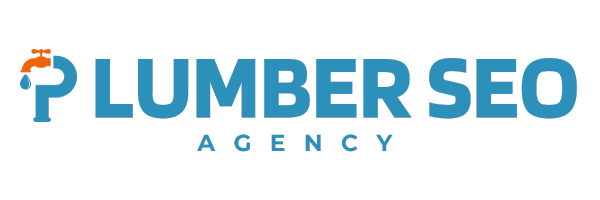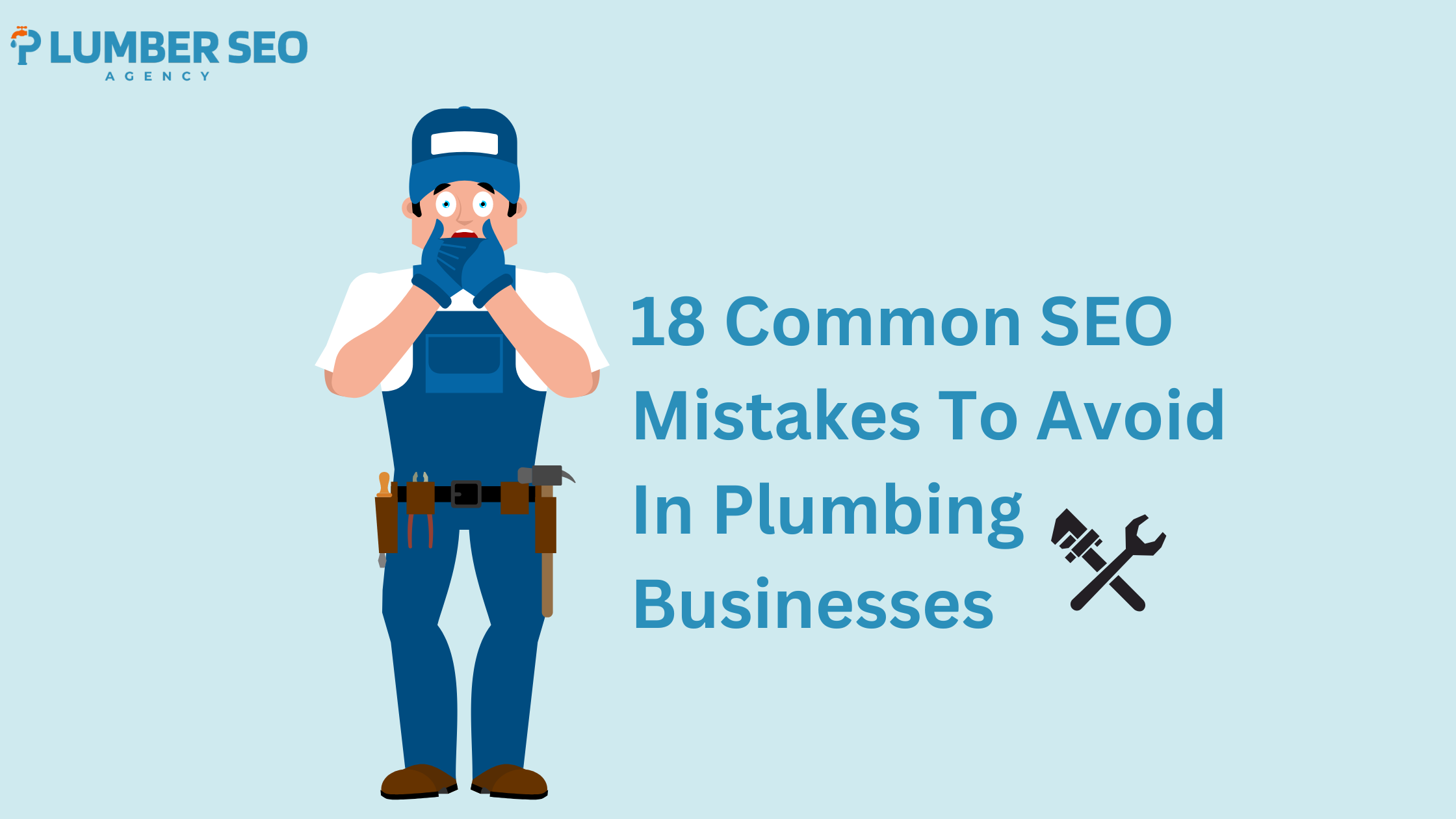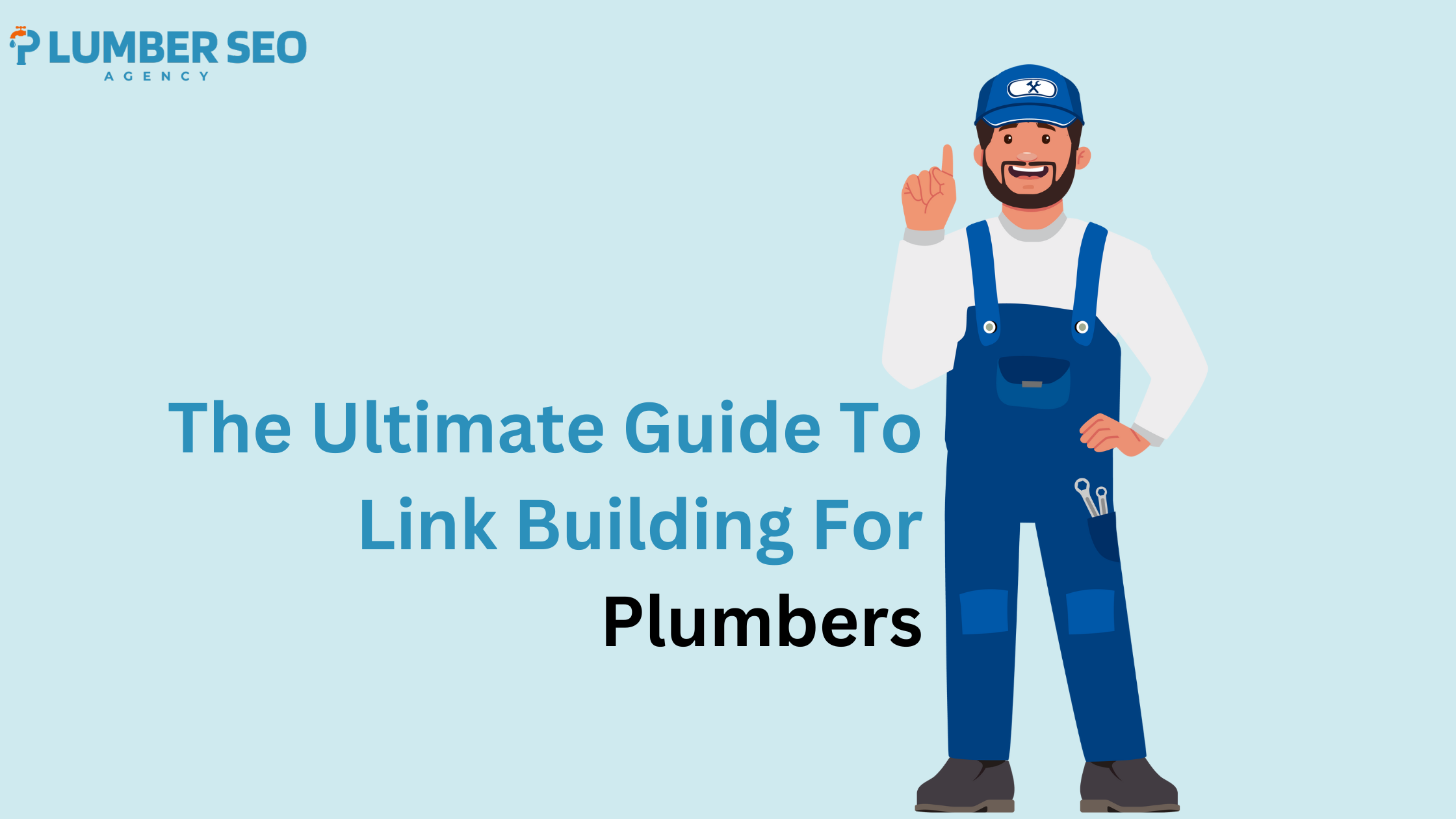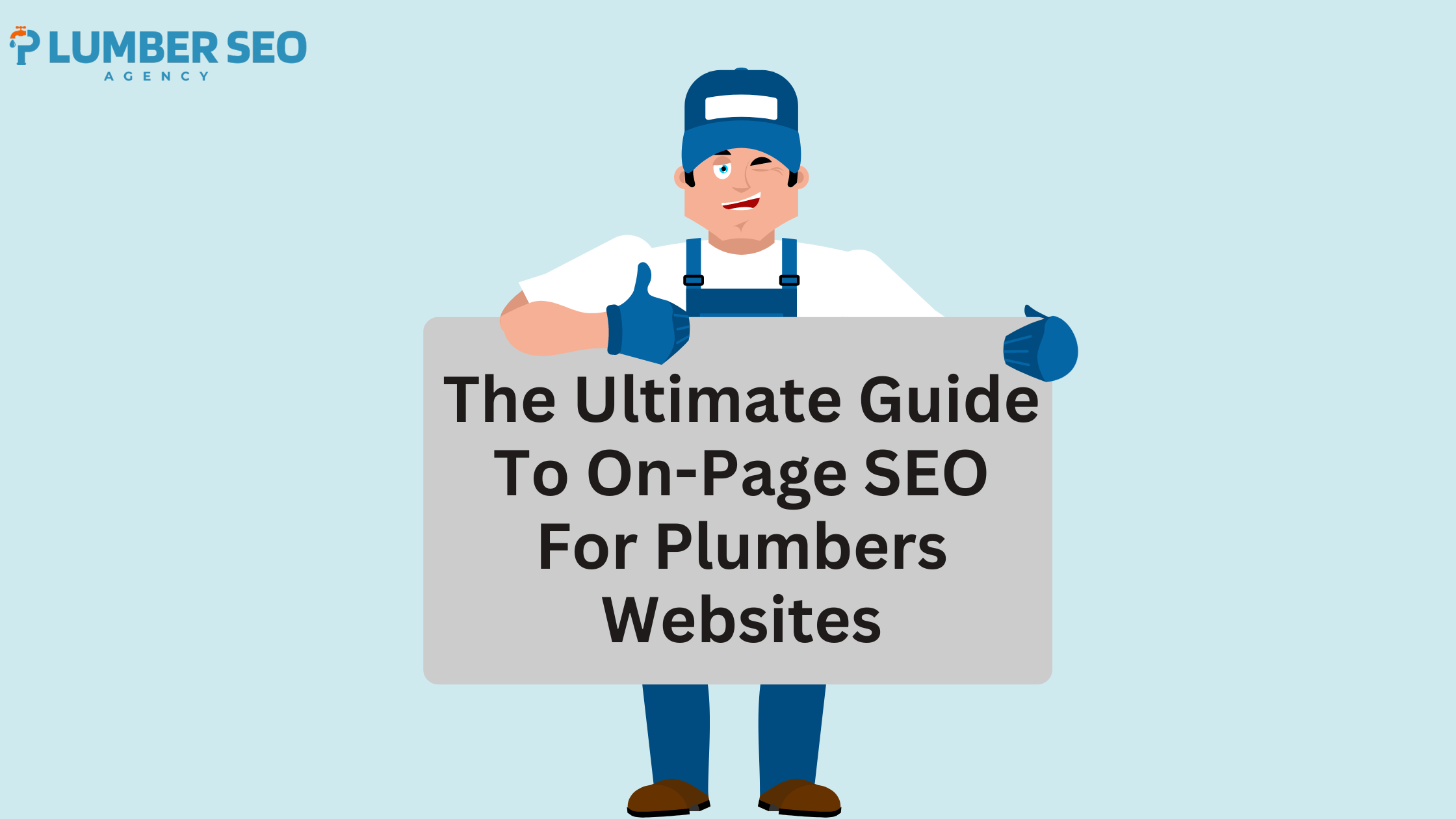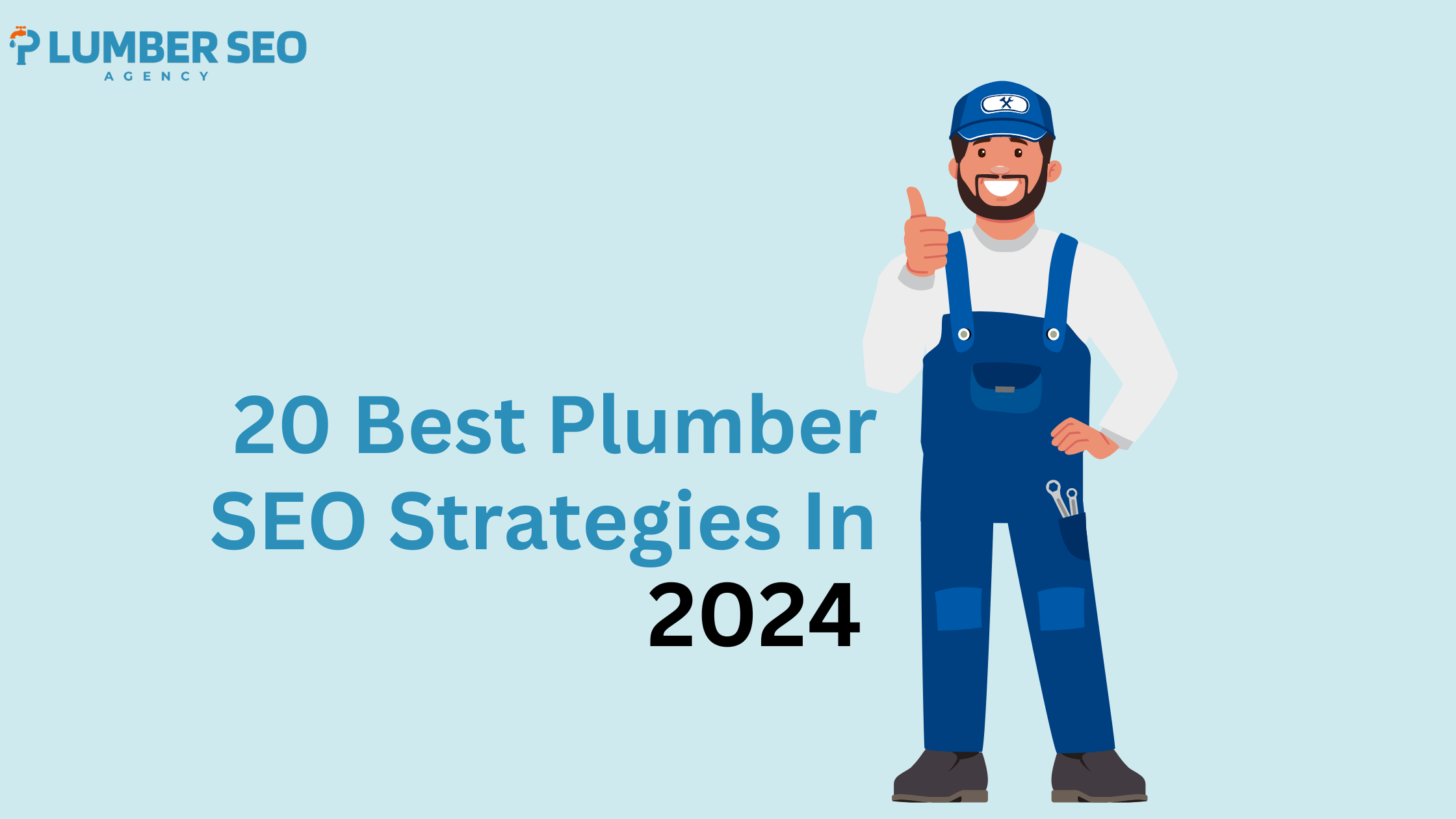Hey there, welcome to the digital age! Running a plumbing business isn’t just about fixing pipes anymore—it’s also about being visible online. And to do that, you need to know about something called Search Engine Optimization (SEO).
But here’s the thing: lots of plumbing businesses make mistakes with SEO. And these mistakes can stop customers from finding you online, which means you might miss out on jobs and money.
So, if you want to make sure your plumbing business stands out online, keep reading. We’re going to talk about the top 18 Common SEO mistakes to avoid. From using too many keywords to forgetting about mobile users, we’ll cover them all—and give you simple tips to fix them. Let’s get started!
- 1. What is SEO?
- 2. Why is SEO Important for Your Plumber Business?
- 3. 18 Common SEO Mistakes To Avoid In Plumbing Businesses
- 1. Not Knowing Your Audience
- 2. Not Having an SEO Plan & Roadmap
- 3. Publishing Non-Original Content
- 4. Failing to Add Schema Markup to Posts and Pages
- 5. Not Connecting to Google Search Console
- 6. Ignoring Meta Tags
- 7. Neglecting Image Optimization
- 8. Ignoring Conversion Data
- 9. Using non-specific local keywords
- 10. Neglecting your Google Business Profile
- 11. Not having a mobile-friendly website
- 12. Ignoring customer reviews
- 13. Ignoring website speed
- 14. Keyword stuffing
- 15. Having thin or low-quality content
- 16. Not building backlinks
- 17. Not being active on social media
- 18. Not having a clear call to action
- 4. How to grow your plumbing business with a Plumber SEO Agency?
1. What is SEO?
SEO stands for Search Engine Optimization. It is the practice of optimizing websites or webpages to improve their visibility and ranking on search engine results pages (SERPs). The goal of SEO is to increase organic (non-paid) traffic to a website by making it more relevant and appealing to search engine algorithms.
This involves various strategies, including keyword research, content optimization, website structure improvements, link building, and technical optimization. SEO helps websites attract more qualified visitors, increase brand visibility, and ultimately, drive conversions and revenue.
2. Why is SEO Important for Your Plumber Business?
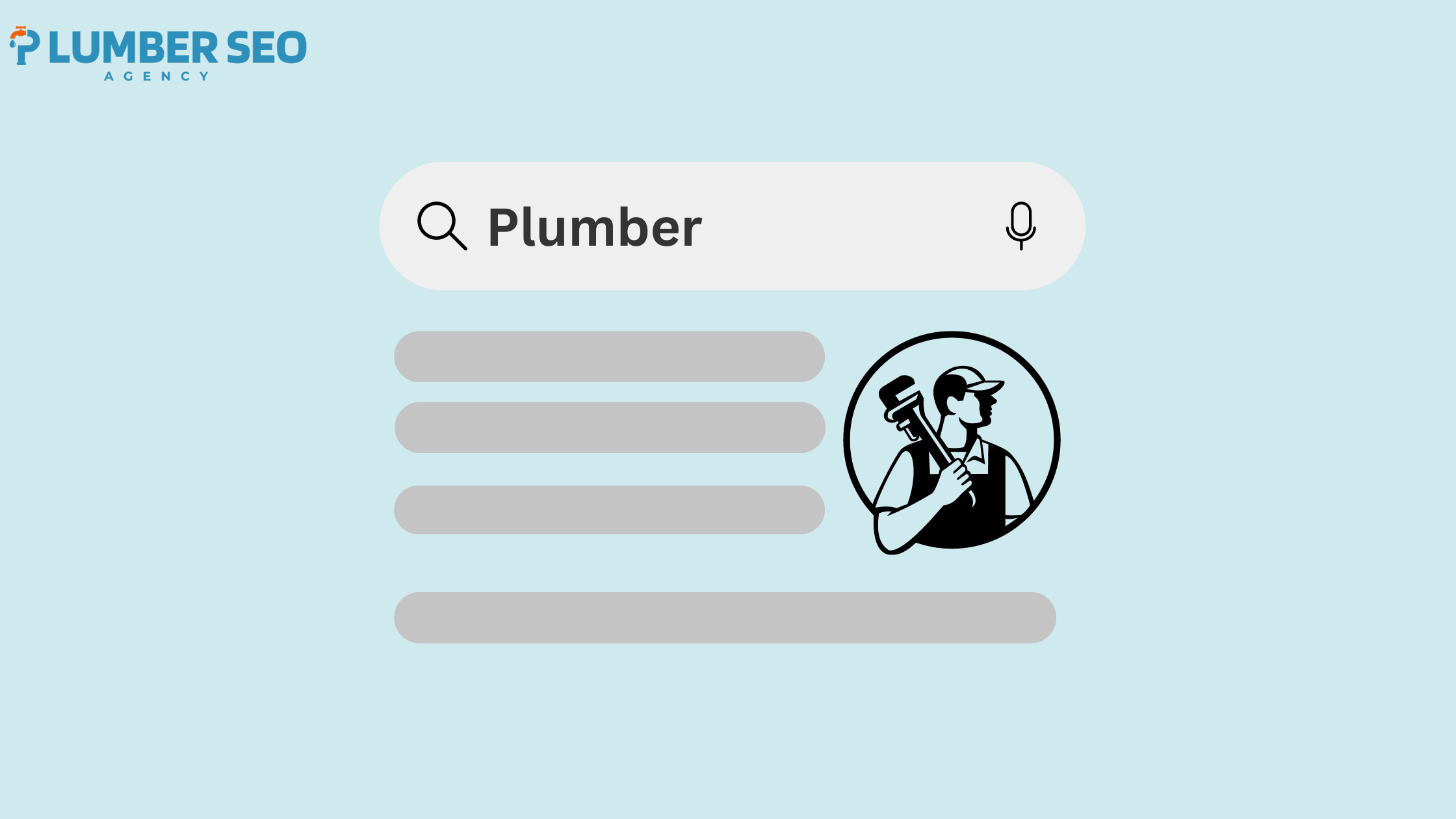
In today’s digital era, a substantial number of people seeking plumbing services turn to search engines such as Google. This underscores the crucial role of SEO (Search Engine Optimization) for plumbing businesses. Here are ways in which SEO can benefit your plumbing business:
- Increased Visibility: Implementing SEO strategies allows your plumbing company’s website to attain higher rankings in search results for relevant keywords such as “plumber near me” or “emergency plumbing services.” This heightened visibility significantly enhances the likelihood of potential customers discovering your business when in need of a plumber.
- Targeted Leads: Unlike traditional advertising methods, SEO attracts potential customers actively searching for plumbing services. This means you are more likely to connect with individuals genuinely interested in your services, resulting in more qualified leads.
- Cost-Effective Marketing: In comparison to paid advertising methods like pay-per-click (PPC) ads, SEO provides a more cost-effective avenue to reach potential customers. While SEO demands initial investment and ongoing effort, it can generate organic website traffic over time, offering a sustainable return on investment.
- Builds Brand Trust and Credibility: Achieving higher rankings in search results can bolster your brand’s credibility and trustworthiness in the eyes of potential customers. Seeing your business at the top of search engine results makes them more likely to perceive your services as reliable and professional.
- Local SEO Advantage: By optimizing your website and online presence for local searches, you can attract customers within your specific service area. This is particularly crucial for plumbers, as most customers prefer local service providers.
3. 18 Common SEO Mistakes To Avoid In Plumbing Businesses
Here are the top 18 common SEO mistakes to avoid in Plumbing Businesses, improving their online visibility and attract more customers:
1. Not Knowing Your Audience
Absolutely! Knowing exactly what your ideal customers are looking for, where they’re located, and how they search online is crucial for crafting content that really hits the mark. It’s like speaking directly to them in a language they understand.
So, let’s dive into it. First, get to know your audience inside and out. What are their problems, preferences, and who are they? This helps you figure out what they’re after. Tools like keyword research and analytics are your best friends here.
Then, think local. If your customers are spread out, consider tailoring your content to their specific areas. This could mean using location-based keywords or talking about things that matter most to people in those regions.
And don’t forget about timing. When are your customers most active online? Knowing this helps you plan when to put out your content for maximum impact.
When you put all this together, you’re not just creating content. You’re creating content that speaks directly to your audience, wherever they are and whenever they’re looking. That’s how you really make an impact.
2. Not Having an SEO Plan & Roadmap
When it comes to boosting your website’s visibility online, having a solid plan is key. Without clear goals, your SEO efforts might end up all over the place, not really hitting the mark. So, take a moment to think about what you want to achieve, map out some strategies, and set milestones that make sense for you. By doing this, you’ll be able to make your SEO efforts more targeted and effective.
3. Publishing Non-Original Content
When it comes to publishing content, ensure that you’re offering something unique and valuable, tailored to your audience. Avoid duplicating or providing thin content, as search engines penalize such practices. Instead, focus on creating informative pieces that address the needs of your audience. Dive into research to gather insights and data that can enrich your content and make it stand out.
Use your own voice and style to engage your audience and strengthen your brand. Keep your content updated and relevant to maintain its freshness and appeal to search engines. Incorporate multimedia elements to enhance the visual appeal and user experience. Remember, quality always beats quantity, so prioritize producing high-quality, original content over quantity.
By following these guidelines, you’ll not only avoid search engine penalties but also establish yourself as a trusted source in your field.
4. Failing to Add Schema Markup to Posts and Pages
Not adding schema markup to your posts and pages can make it tough for search engines to grasp what your content is all about. You know, like giving them a map to understand your stuff better. And when search engines understand your content better, they can show it off more in search results, making it easier for people to find. So, if you want your content to shine bright and get noticed, adding schema markup is the way to go!
5. Not Connecting to Google Search Console
Have you heard about Google Search Console? It’s this fantastic free tool Google offers that gives you all sorts of insights into how your website is doing. You can find out about things like crawl errors, search queries, and opportunities to make your site even better. It’s like having a backstage pass to see what’s going on with your website and how you can improve its performance.
Connecting your site to Google Search Console is like unlocking a treasure chest of information that can really help you out. Whether you’re a pro at managing websites or just starting out, using Google Search Console is a total game-changer for making sure your website gets noticed online.
6. Ignoring Meta Tags
- Not using meta descriptions: Enhancing website content beyond meta descriptions involves refining the main content to captivate users’ interest and convey the webpage’s value proposition effectively. This includes optimizing headlines, subheadings, and body content to provide relevant information, address user needs, and encourage click-throughs from search engine results.
By focusing on creating compelling messaging and engaging language, websites can better attract and retain user attention, ultimately leading to increased click-through rates and improved search engine visibility.
- Not using meta titles: When enhancing content in paragraphs, it’s important to focus on optimizing titles with relevant keywords and maintaining engagement for the audience. Titles are usually the first thing users see in search results, so they need to be crafted in a way that not only includes the right keywords but also captures the interest of the audience.
By using language that is compelling and intriguing, asking questions that pique curiosity, or offering promises of valuable insights or solutions, the chances of attracting users’ attention and encouraging them to click through to the content are increased. This approach ensures that the content remains relevant and engaging for the intended audience.
7. Neglecting Image Optimization
Neglecting image optimization is like leaving an important ingredient out of a recipe; it can really spoil the dish. If you want your website to shine and attract visitors, it’s vital to pay attention to the details, including how you handle your images. Think of it this way: by using relevant keywords in your image file names and alt text descriptions, you’re giving search engines a roadmap to navigate your site better.
Plus, it makes your content more accessible to everyone, including those who rely on screen readers. And let’s not forget about the need to compress those images. Just like squeezing out excess water from a sponge, compressing images reduces their size, making your website load faster and keeping visitors engaged.
So, if you want your online presence to stand out in the crowded digital world, don’t overlook the power of image optimization.
8. Ignoring Conversion Data
When you analyze your website’s performance and user behavior, you’ll uncover key areas where improvements can be made. By optimizing your content and calls to action based on how users interact with your site, you’ll see better conversion rates. Take a data-driven approach to fine-tune your content and calls to action to match what resonates best with your audience.
This ongoing process ensures that your website stays relevant and responsive to your visitors’ evolving needs and preferences, driving continual growth and success.
9. Using non-specific local keywords
When aiming to boost your online visibility and attract customers effectively, it’s essential to refine your keyword strategy beyond general terms like “plumber.” Incorporating localized keywords specific to your area, such as “emergency plumber near you” or “leaky faucet repair in your zip code,” can significantly improve your chances of connecting with your target audience.
These customized keywords not only mirror what you’re likely to search for, but also emphasize your proximity and availability, crucial factors in their decision-making process. By optimizing for these non-specific local keywords, you position your business as the go-to solution for plumbing issues in your community, ultimately driving more qualified leads and conversions your way.
10. Neglecting your Google Business Profile
Are you aware that neglecting your Google Business Profile is akin to leaving money on the table in today’s digital landscape? It’s a missed opportunity to showcase your business information, reviews, and photos to potential customers who are actively searching for businesses like yours. By claiming and optimizing your free Google Business Profile, you can ensure that your business appears prominently in local searches, giving you a competitive edge in your area.
Don’t underestimate the power of this platform; it’s essentially your virtual storefront, where customers can learn all they need to know about your business before deciding to engage with you. Plus, positive reviews and appealing photos can significantly boost your credibility and attract more customers. So, take control of your online presence today and reap the benefits of an optimized Google Business Profile.
11. Not having a mobile-friendly website
The prevalence of mobile devices as primary tools for browsing the internet has skyrocketed. Consequently, it’s imperative for businesses like yours to prioritize the optimization of websites for mobile platforms. Failure to do so risks alienating a significant portion of potential customers, who access the web primarily through smartphones and tablets. Therefore, ensuring that your website is not only responsive but also intuitive and easy to navigate across all screen sizes is crucial.
By embracing mobile-friendly design principles, you can effectively cater to the needs and preferences of your audience, providing seamless browsing experiences that foster engagement and drive conversions. Embracing this approach not only enhances user satisfaction but also bolsters the overall competitiveness and relevance of your online presence in an increasingly mobile-centric digital ecosystem.
12. Ignoring customer reviews
Encouraging customers to leave reviews on platforms like Google My Business and others is a crucial aspect of building a strong online presence and reputation. However, simply soliciting reviews isn’t enough; it’s equally important to respond to both positive and negative feedback professionally and promptly.
When customers take the time to share their experiences, whether good or bad, they’re offering valuable insights that can help improve your business and customer service. By acknowledging and addressing their feedback with professionalism and empathy, you not only demonstrate your commitment to customer satisfaction but also showcase transparency and accountability, which can ultimately enhance your brand’s credibility and trustworthiness.
13. Ignoring website speed
Improving website speed is critical for both bolstering your site’s search engine optimization (SEO) performance and ensuring a seamless user experience. A sluggish website can discourage visitors and harm your online visibility, making it imperative to optimize its loading times. To achieve this, consider implementing various strategies. Firstly, compressing images without compromising their quality is essential, as it reduces file sizes and accelerates loading times.
Additionally, minifying code by eliminating unnecessary characters and whitespace can streamline the loading process further. Furthermore, selecting a reputable web hosting service is crucial, as it directly impacts server response times. By incorporating these optimizations, you can significantly boost your website’s speed, enhancing its SEO efficacy and delivering a more satisfying experience to your audience.
14. Keyword stuffing
Keyword stuffing, the practice of cramming as many keywords as possible into your content, is not only ineffective but can also have detrimental effects on your search engine ranking. While it may seem like a shortcut to boost visibility, search engine algorithms have become increasingly sophisticated in detecting and penalizing this kind of manipulation. Instead of focusing solely on keywords, it’s essential to prioritize creating high-quality, valuable content that resonates with your audience.
By incorporating relevant keywords naturally and organically within your content, you can improve your chances of ranking well in search results while also providing a better user experience. Ultimately, the goal should be to create content that engages and informs your audience, rather than attempting to game the system with keyword stuffing tactics.
15. Having thin or low-quality content
Creating valuable and engaging content is crucial for achieving visibility and success in online platforms, particularly in the eyes of search engines like Google. In today’s digital landscape, quality reigns supreme. Rather than producing brief, insubstantial pieces, focus on crafting comprehensive and informative content that truly adds value to your audience. Delve deep into topics, providing thorough insights, analysis, and practical takeaways.
If you’re in the plumbing industry, investing in Plumber Content Marketing services can significantly boost your online presence and customer reach. By doing so, not only do you establish authority and credibility in your niche, but you also cater to the needs and preferences of your target audience, thereby increasing the likelihood of user engagement and organic traffic growth.
Remember, quality content is not just about word count; it’s about offering meaningful, relevant, and well-researched information that resonates with your audience and keeps them coming back for more.
16. Not building backlinks
Building backlinks from high-quality websites is crucial for establishing credibility and relevance in the eyes of search engines. When reputable websites link to your content, it serves as a vote of confidence, indicating to search algorithms that your website is trustworthy and worthy of attention. These backlinks act as pathways, guiding both search engine crawlers and human visitors to your site, ultimately enhancing its visibility and authority within your niche.
By not focusing on building backlinks, you may miss out on valuable opportunities to strengthen your online presence and improve your search engine rankings. Therefore, prioritizing the acquisition of quality backlinks, especially through Plumber Link-Building services, remains an integral component of your successful digital marketing strategy.
17. Not being active on social media
Not being active on social media could mean missing out on valuable opportunities to increase brand awareness, connect with potential customers, and drive traffic to your website. Engaging on social media platforms enables businesses to showcase their products or services, directly interact with their audience, and establish a strong online presence. Regularly sharing informative content, participating in discussions, and updating followers about business developments can help maintain relevance in the industry and reach a wider audience.
Furthermore, social media platforms provide insights into audience preferences and behaviors, allowing for more targeted marketing efforts. Therefore, being active on social media is essential for businesses seeking to expand their reach and enhance their online presence.
18. Not having a clear call to action
Make sure your content encourages users to take action by giving them clear directions on what to do next. Whether it’s getting in touch for a quote, setting up an appointment, or checking out more pages on your website, guide your audience toward the desired outcome after they’ve read your content.
4. How to grow your plumbing business with a Plumber SEO Agency?
Growing your plumbing business with a Plumber SEO Agency involves several key steps. Firstly, collaborate closely with the agency to optimize your website for search engines, ensuring it ranks high in relevant searches. This includes keyword research, on-page optimization, and creating compelling content. Additionally, leverage local SEO tactics to target customers in your service area. The agency can help you with local directory listings, Google My Business optimization, and obtaining positive reviews.
Are you a plumber looking to expand your online presence and attract more clients? Look no further than Plumber SEO Agency! We specialize in providing top-notch SEO services tailored specifically for plumbing businesses like yours. With our expertise, we can help your website climb to the top of search engine results pages, ensuring that potential customers find you before they find your competitors.
At Plumber SEO Agency, we understand the unique challenges that plumbing businesses face in the digital world. That’s why we offer comprehensive SEO strategies designed to target your ideal audience and drive traffic to your website. From keyword optimization to local SEO tactics, we employ a range of techniques to ensure that your business stands out online.
But our services don’t stop there. We also offer website audits to identify areas for improvement, content creation to engage your audience, and ongoing monitoring to track your progress.
Contact Plumber SEO Agency today and take the first step towards growing your plumbing business online. Let us help you reach new heights of success!
Conclusion:
In conclusion, steering clear of common SEO mistakes to avoid in Plumbing businesses
is crucial for the success of your plumbing business in today’s digital landscape. By sidestepping these pitfalls and implementing effective strategies, you can significantly enhance your online visibility, attract more targeted leads, and ultimately foster the growth of your business.
Understanding your audience, crafting a comprehensive SEO plan, publishing original and valuable content, and optimizing various elements such as meta tags, images, and website speed are pivotal steps toward success. Moreover, leveraging tools like Google Search Console, optimizing for local search, and actively managing your online reputation can further augment your competitiveness in the market. Partnering with a reputable Plumber SEO Agency can provide expert guidance and support to maximize your online presence and drive tangible business growth.
How can plumbing businesses avoid using black hat SEO techniques?
Black hat SEO techniques involve unethical practices to manipulate search engine rankings. Plumbing businesses should avoid techniques such as keyword stuffing, buying links, and cloaking, as they can result in penalties from search engines.
What are some tools available for monitoring SEO performance in plumbing businesses?
There are various tools available such as Google Analytics, Google Search Console, SEMrush, Moz, and Ahrefs, which provide valuable insights into website traffic, keyword rankings, backlinks, and other SEO metrics.
How can plumbing businesses stay updated with the latest SEO trends and best practices?
- Plumbing businesses can stay updated by following reputable SEO blogs, attending industry conferences and webinars, participating in online forums and communities, and regularly reviewing updates from search engines like Google. Keeping abreast of industry trends ensures that businesses can adapt their SEO strategies accordingly and stay competitive in the online landscape.
